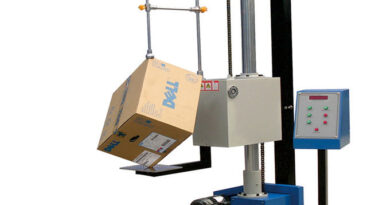Tetra Pak added certified recycled polymers
Today Tetra Pak has declared the introduction of certified recycled polymers, converting the first organization in the food packaging industry to be awarded the Roundtable on Sustainable Biomaterials (RSB) Advanced Products certification.
Its carton packs blending attributed recycled polymers are now ready for food and beverage companies.
This progress marks a crucial action in Tetra Pak’s approach to circularity:
- Decreasing dependency on fossil-based sources.
- Responsibly sourcing raw materials.
- Creating packages for improved recycling and reduced litter.
- Building companies to develop useful collection and recycling foundations worldwide.
Alejandro Cabal, VP – Packaging Solutions, Tetra Pak, said: “As signatories of the Ellen MacArthur New Plastics Economy Global Commitment, we have promised to include a minimum of 10% recycled plastic content on average over carton units sold in Europe by 2025, directed to suitable food-grade recycled plastics being technically and economically feasible. Having worked jointly with INEOS and RSB in the preceding few months, we are now capable of offering carton packages combining attributed recycled polymers, further allowing the sustainability transformation of the food industry.”
Utilizing recycled material can provide increased recycling rates and begin recycling more economically viable. But responsible sourcing and quality can be difficult due to insufficient food-grade recycled plastics in the market.
With this in mind, Tetra Pak launched a close supplier collaboration to examine utilizing recycled polymers in carton packs and recognized INEOS to provide the first batch of accredited recycled polyethylene (PE).
The worldwide producer of petrochemicals, specialty chemicals, and oil goods is leveraging PLASTIC ENERGY’s advanced recycling process to transform waste plastic into high-quality polymers, substituting oil-based products with the same material specifications and the equivalent level of product purity as original plastic.
Cabal added: “RSB verifies that the attributed recycled polymers used in the caps, tops, and coatings of Tetra Pak carton packs are designed for sustainably. Being the beginning in our division to be awarded the RSB Advanced Products certification represents yet another breakthrough in our journey towards the world’s most sustainable food package: a package that is completely made from renewable or recycled materials is suitable and safe – hence allowing a resilient food system – is fully recyclable and carbon-neutral. Qualifying and assuring mass balance claims is critical to ensure transparency and accountability within the system, therefore enhancing confidence from the end-user perspective.”
Following the RSB chain of custody attribution method, the plastics are made of a mix of recycled and non-recycled materials, with the corresponding mass of recycled materials tracked throughout the Tetra Pak supply chain.
Initiatives such as these are the need of the hour. Recycling has become a go-to solution to the packaging problem as part of a move to circularity. But the world cannot rely on recycling alone, as fossil-based plastic production is still growing – it reached around 368 million metric tonnes in 2019.
Meanwhile, recycled content mandates worldwide offer a regulatory push to ensure producers buy recycled materials; this increases demand and encourages expanded offer. NGOs are also strongly supporting this move.
The latest Global Commitment progress report, published by the Ellen MacArthur Foundation in November 2020, indicates that – despite recycled content in packaging having grown by ‘22% year-on-year and the number of reduction targets having more than doubled – a substantial acceleration will be needed in the coming years to circulate everything we use, keeping it in the economy and out of the environment’.
Cabal concluded: “There is a long way to go before plant-based and recycled polymers become mainstream. We are working with partners to explore sustainable polymers further while continuing to assess the use of alternative plant-based products and recycled fiber-based materials. Our long-term ambition is clear, for all our packaging uses renewable or recycled polymers, ending fossil feedstock extraction. Coordinated action and advocacy by multiple companies and other actors are required to support the transition to a low carbon circular economy.”
The recycled polymers used in Tetra Pak carton packages are produced under the RSB attribution model of a chain of custody (RSB Advanced Products Category III, Recycled feedstock – 100% attributed). This means that the plastics are made of a mix of recycled and non-recycled materials, with the corresponding mass of recycled materials tracked throughout the Tetra Pak supply chain.
According to the RSB Chain of Custody Procedure, this is verified by a third-party auditor, which forms part of the RSB Advanced Products certification.
Read More Article
- Biodegradable plastic – The complete details
- A new symbol for the sterile medical device packaging by Sterile Barrier System
- A new biodegradable standard introduced by the British Standards Institution
- Surprisingly History Facts of Paper Bottle and FFS Machine– John Van Wormer (1856 – 1942)
- Top 19 Sustainable packaging innovations 2020
- How will ceramic coating film help in the future growth of packaging?
- How edible packaging material for future sustainable growth?






